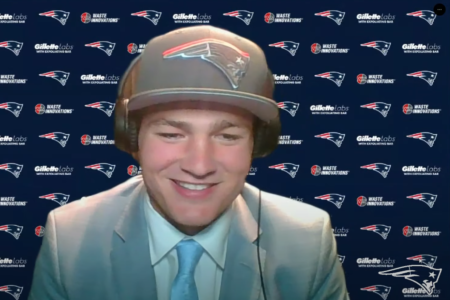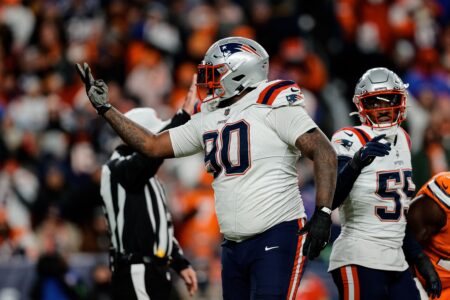Dave Stachelski - 5th Round - 141st Overall
Arthur Love- 6th Round 180th Overall
Jabari Hollaway - 4th Round- 119th Overall
Daniel Graham - 1st Round - 21st Overall
Ben Watson - 1st Round - 32nd Overall
Andy Stokes - 7th round - 255th Overall
David Thomas- 3rd Round - 86th Overall
----------------------------------------------------
Terrance Wheatley - 2nd Round - 62nd Overall
Jonathan Wilhite - 4th Round - 129th Overall
Darius Butler - 2nd Round - 41st Overall
Brandon Tate - 3rd Round - 83rd Overall
Taylor Price -3rd Round - 90th Overall
Bethel Johnson - 2nd Round - 45th Overall
Chad Jackson - 2nd Round 36th Overall
------------------------------------------------
Listen, you can talk all you want about how we wasted picks with Tight Ends. But the comparison of the players I named and the ones you named shows that, with the exception of ONE player, each of the draft picks were selected in the 2nd and 3rd round. The other in the fourth round. Every single one of these players was an absolute bust.
The names you selected were 4th, 5th, 6th and 7th rounders. The others were Ben Watson and Daniel Graham. I mean, call me crazy but these were not busts. These two were good players. 10 years later Graham is still in the league, and Watson signed a very nice deal with the Browns. These are not Hall of Famers by any stretch, but Geez, they were good. Daniel Thomas wasnt great either, but he was ok. Good enough for the Saints to take him away from us. He'd probly still be on our team if not for a dumb penalty vs. the Colts in 08 which cost us a playoff spot.
Your attempt at bashing me is foolish. You use extremes which arent event close. The percentage of "premium picks" used on CBs and WRs vs. TEs isnt a comparison. Especially if you consider Daniel Graham and Watson to be good players, like I, and most people do
First of all you are using players drafted through the 4th round in your argument regarding defensive backs and wide receivers, but you don't want to use players drafted through the 4th round in the counterpoint (Mills, Holloway); I think you really need to use the same standards for both sides of an argument.
Second you make the case that certain players were good picks because they are still in the league or lasted a long time (tight ends Watson and Graham), but you don't do the same when it comes to wide receivers (Tate, Edelman, Slater, Price) or defensive backs (Wilson, Sanders, Hobbs, Meriweather, Wlhite, Wheatley); again, I would simply ask that one applies the same standard to both sides of the argument.
Third, let's play out a hypothetical scenario. In the first drive of a game a team throws an incomplete pass, another incomplete pass, and an interception. Should they not throw another forward pass for the rest of the game? What if they run for no gain, a loss of three, and a fumble; should they not run again for the rest of the game?
In the above scenarios would it not be better to take a look at why those plays did not work, make adjustments, and then try another pass (or run) rather than abandon the passing (or running) game entirely for the rest of the game?
To me the more logical solution is for the various talent evaluators - area scouts, director of college scouting, Caserio, Belichick, position coaches, coordinators and whoever else is involved in any way with what goes into evaluating players before the draft - at some time they go back and try to determine what they may have overlooked, what they overvalued and undervalued, learn from that and try to become better talent evaluators.
That to me would seem to make a whole lot more sense than what I would consider to be an over reaction: that is, to never ever draft a player from (fill in the blank of the position) because there were some cases in the past where players from said position did not eventually become all-pros.
Personally I think the use of extremes to attempt to prove a point is on your part, not mine.
















